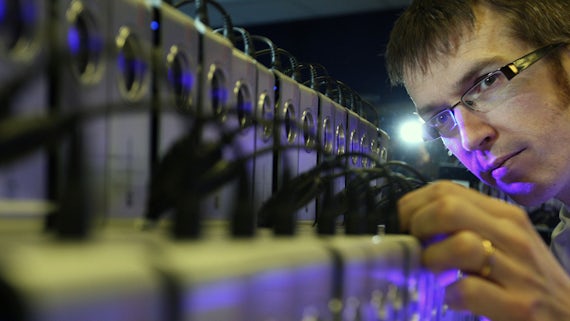
Computer science and informatics
We are a research-led school with a reputation for excellent teaching and our dynamic portfolio of contemporary degrees are taught by experts in their field.
Why study with us
Range of degrees
We offer a range of specialist and conversion degree programmes to suit a variety of backgrounds, whether you have knowledge of the subject or are switching from another discipline.
Assisting your study
All MSc students will be provided with a laptop during induction week that will remain with you throughout the duration of your course.
Paid work placement
Gain valuable work experience on professional work placements and projects with leading industrial practitioners.
I originally gained employment after graduating with an undergraduate degree from Oxford University, but I soon realised I was on a career trajectory that I hadn’t actively chosen. I decided to do a conversion course so that I could start afresh with more options open to me. I chose Cardiff because the course modules seemed more relevant to the skills I would need in the job market than other conversion courses I looked at. Cardiff also had really good support for postgraduates. This MSc has definitely opened up job opportunities that were just not available to me at all before taking the course.
Our talks
I chose to study in Cardiff because of the open day. The atmosphere at Cardiff was friendly and inviting, the students showing us the university were enthusiastic about Cardiff, the facilities for my course were modern, and the labs were brightly lit, providing a good environment for study. Cardiff offers many career fairs to assist in getting a career, provides personal tutors to help with any course related issues and the high-quality teaching on offer by the professors.
Courses
Studying with us

Data Science Academy
A number of our MSc degrees are taught at the Data Science Academy which was established to respond to the demand for highly-skilled and employable graduates in areas including data science.
By working together with industry, we aim to expose students to a broad range of techniques for understanding data and use these to apply cutting-edge analytical methodologies to a range of real-world problems.
Explore Cardiff University
Next steps
View all Cardiff Computer Science and Informatics School courses
Explore our postgraduate taught and research courses for 2021 entry.
Contact us
Ask us a question via our enquiry form, and we'll get back to you as soon as possible.
How to apply
Everything you need to know about our applications process.




















